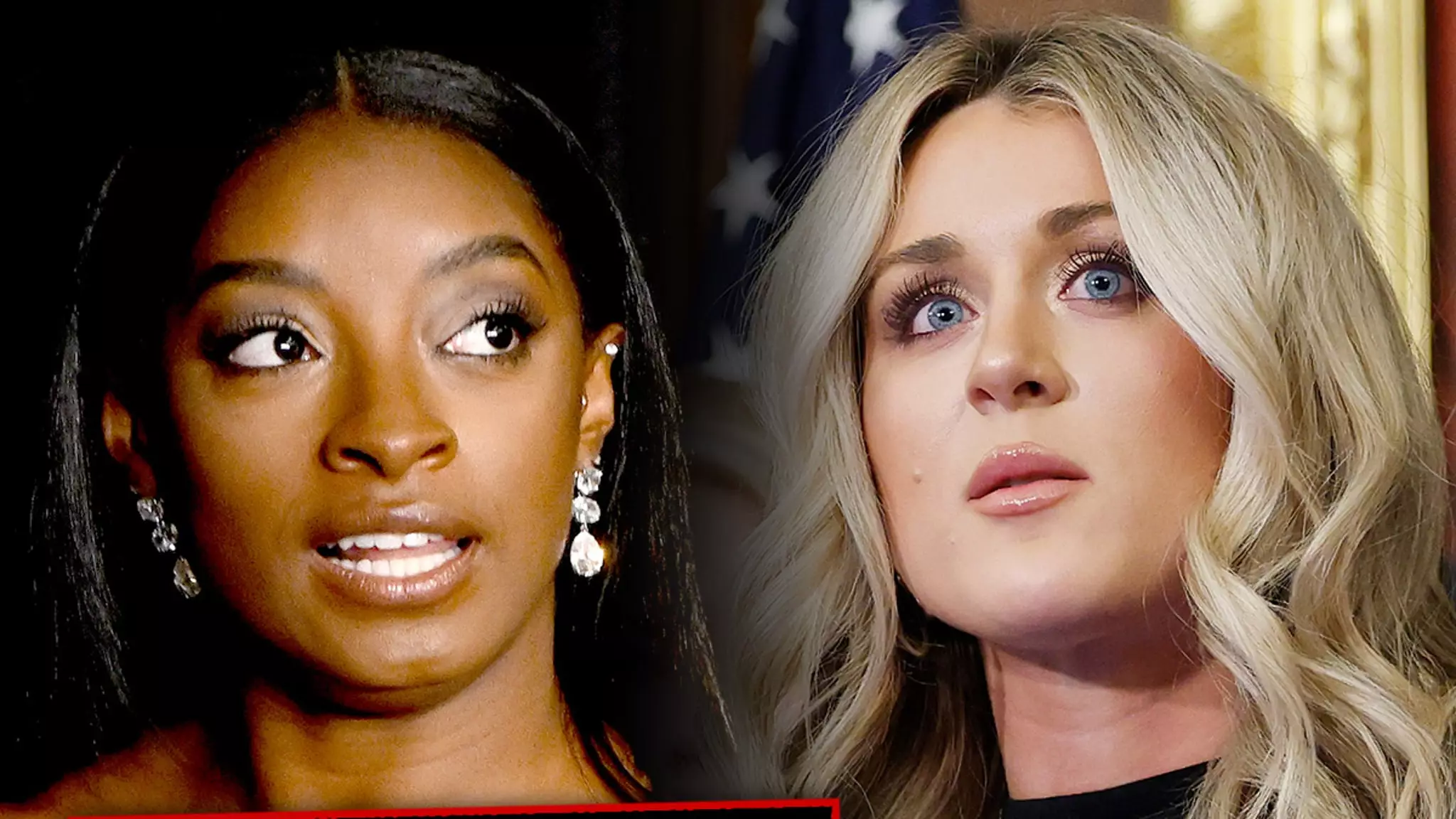In the realm of sports, where athleticism often meets deeply rooted social issues, the exchange between Olympic gymnastics champion Simone Biles and conservative activist Riley Gaines has ignited a passionate debate about identity, inclusivity, and competitive fairness. This stirred up discourse goes beyond mere entertainment value—it exposes the contrasting ideologies that define contemporary sports. At its core, this friction exemplifies a fracture in societal perspectives on gender and fairness that begs thorough examination.
The incident in question erupted when Gaines made critical remarks regarding a trans high school athlete, expressing her disdain on social media for their inclusion in female sports. Her sentiment struck a chord among her supporters but ignited fierce backlash, particularly from Biles, a figure long revered not only for her athletic prowess but also for her advocacy of inclusivity and women’s rights. Biles’s swift condemnation of Gaines serves as a compelling reminder that the sports landscape is increasingly becoming a battleground for broader cultural conflicts.
Biles’ Stance and the Call for Inclusivity
Biles’ response to Gaines was not simply an impulsive reaction; it reflected a broader philosophy about sports and the values they should embody. By denouncing Gaines’s comments as “sick” and framing them as a product of sore losing, Biles positioned herself as an ally to not just trans athletes but to the universal principles of sportsmanship and equality. Her assertion that sports should encourage inclusivity resonates with many who share her vision of a work where everyone, regardless of gender identity, can participate fully and authentically.
Furthermore, her criticism highlighted an essential point: the idea that competitive spaces might need to evolve for the sake of justice and representation. Biles challenged Gaines to redirect her energies from divisive rhetoric toward fostering acceptance—an admirable call that reflects a maturity rarely found in public discourse. This adds a poignant layer to the conversation, suggesting that merely competing is not sufficient; we must collectively strive for a sports culture that embraces diversity.
The Backlash: Gaines’ Firm Defiance
Gaines’ staunch opposition to Biles’ perspective suggests a deep-rooted fear of losing the essence of women’s sports. Her proclamation that “men don’t belong in women’s sports” underscores a protective instinct toward the space women have fought so hard to earn throughout history. However, rather than engaging in a constructive dialogue, Gaines’ approach resorts to combative rhetoric that eliminates the possibility of mutual understanding.
Her statements regarding Biles’ traumatic experiences at the hands of a male abuser further complicate the discussion. By invoking this painful aspect of Biles’ past, Gaines attempted to dismantle Biles’ credibility, imputing that support for trans athletes somehow undermines the safety and dignity of women. This tactic often results in polarizing arguments that fail to shed light on the shared humanity among all athletes.
Navigating the Complexities of Gender and Competition
The divide between Biles and Gaines illustrates a crucial dilemma within the sporting landscape: how do we balance the need for inclusivity with the desire to protect the integrity of women’s competitions? This question does not have straightforward answers, but it highlights the complexity of identity in competitive spaces.
As society grapples with rapidly changing definitions of gender and identity, it’s crucial to foster discussions that prioritize empathy over enmity. Biles represents a hopeful vision of progress, advocating for the empowerment of all individuals, while Gaines reflects a valid concern for the experiences of cisgender women in athletics. The challenge lies in creating a dialogue that respects both perspectives rather than entrenching them into opposing sides.
The clash between Biles and Gaines thrusts pressing social issues into the limelight, forcing us to confront uncomfortable truths about identity and competition. As the conversation continues, participants must evolve to embrace more nuanced discussions that encompass the diverse identities and experiences encompassed in the world of sports.

